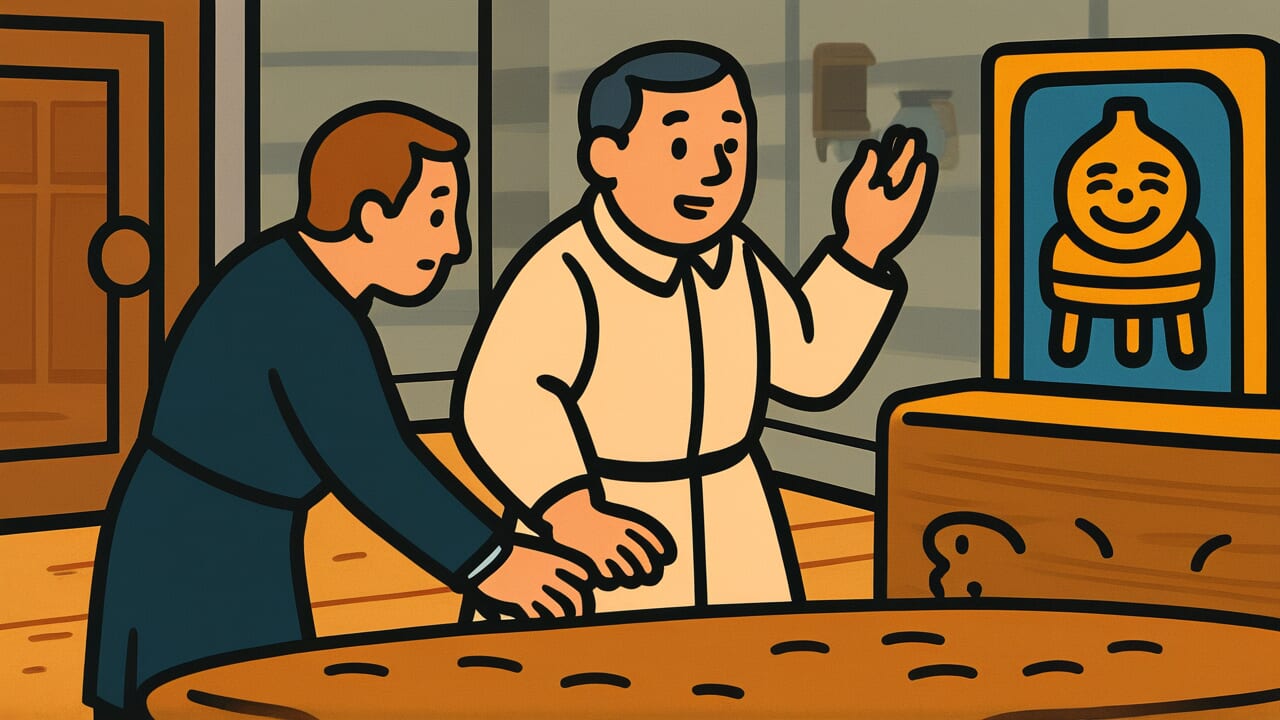How to Read “When the lord likes to shoot arrows, his retainers pick up and gather them”
Sono kimi hatsu wo konomeba sono shin ketsu shū su
Meaning of “When the lord likes to shoot arrows, his retainers pick up and gather them”
This proverb means that when a ruler enjoys archery, his subjects naturally follow and learn archery too. It shows how the actions and interests of leaders naturally influence those below them and spread throughout the entire organization.
A leader’s interests and values reach the people around them without any commands. Subordinates and those nearby are sensitive to what their boss or leader values, and they try to align themselves accordingly.
This is a natural human psychology. It shows the true nature of influence in organizations.
Even today, when a CEO values learning, employees start learning too. When a teacher enjoys reading, students pick up books as well.
The attitude of those in leadership positions sends a stronger message than words. It shapes the entire organizational culture.
Origin and Etymology
This proverb is believed to come from ancient Chinese classics. “Hatsu” means shooting a bow. “Ketsu shū” refers to technical movements in archery.
One theory says “ketsu” means drawing the bowstring, while “shū” means picking up arrows.
In ancient China, archery was one of the six arts that a noble person should master. It wasn’t just a martial skill. It was considered an important element of character development.
When a ruler enjoyed archery, that influence spread throughout the entire court. Retainers would compete to learn archery too. This observation likely gave birth to the proverb.
What’s interesting is that this proverb doesn’t just mean “to imitate.” It shows the great influence of those in power. It uses the concrete example of archery to express how a ruler’s hobbies and interests shape the culture of the entire organization.
Confucian thought emphasized the concept of “transformation by moral influence.” This idea held that the virtue of superiors naturally influences subordinates.
This proverb is thought to explain the essence of leadership through the easy-to-understand example of archery, based on this philosophical background.
Usage Examples
- When the company president started jogging every morning, “When the lord likes to shoot arrows, his retainers pick up and gather them” – a running boom started among the employees
- Seeing the teacher enthusiastically work on experiments, just like “When the lord likes to shoot arrows, his retainers pick up and gather them,” the students began to take interest in science
Universal Wisdom
The universal truth this proverb reveals is the fundamental human learning instinct of “imitation” and the deep psychology of “the desire for approval.”
We unconsciously observe and imitate the actions of people we respect or who have power. We do this to become closer to them. It’s the same mechanism as children imitating their parents.
What’s particularly interesting is that this proverb uses the word “likes” rather than “commands.” Those in power don’t force anything. They simply show themselves enjoying something, and the influence spreads to those around them.
This is a deep insight into human nature.
People sometimes resist when commanded. But when they see someone enjoying something, they’re naturally drawn to it.
Furthermore, within organizations, people instinctively sense that aligning with the leader’s interests will benefit their position. This complex psychology, mixing calculation with admiration, shapes organizational culture.
Ancient people sharply understood this human trait. That’s why they passed down this proverb to explain the weight of a leader’s responsibility.
When AI Hears This
The phenomenon where a leader’s small preference shakes an entire organization is surprisingly similar to resonance in physics.
When you strike one tuning fork, nearby tuning forks of the same frequency start vibrating on their own. This happens because vibrational energy travels through the air and amplifies in the receiver.
The same thing happens in organizations. The moment a leader says “I like this,” that signal propagates through the organization as a medium. Subordinates compete to resonate with it.
What’s noteworthy is the nonlinearity of the amplification rate. In other words, doubling the input energy doesn’t just double the output. In some cases, it becomes 10 times or 100 times greater.
When a leader likes something just a little, subordinates react excessively, digging into the ground. This has the same structure as the 1940 Tacoma Bridge collapse.
When a small periodic force called wind matched the bridge’s natural frequency, the bridge shook violently enough to self-destruct.
Within organizations, the “damping mechanism” that stops this resonance doesn’t work well. This is because humans have a psychological positive feedback loop called “wanting to be valued.”
In physical systems, friction and air resistance absorb energy. But in organizations, flattery and competitive spirit add energy instead.
When a leader’s casual remark matches the organization’s natural frequency, uncontrollable collective behavior emerges. This “unintended destructive resonance” is the essence of what this proverb warns about.
Lessons for Today
What this proverb teaches modern people is that influence isn’t about giving commands. It’s determined by how you live your own life.
If you’re a parent, showing your children that you enjoy learning sends a far stronger message than saying “study harder.”
If you’re in a leadership position at work, first embody the attitude you want from your subordinates. If you want them to be punctual, be punctual yourself. If you want them to take challenges, challenge yourself first.
Your actions speak more eloquently than any words.
And this isn’t just about leaders. In friendships and within families, your actions are always being watched and influencing someone.
If you live positively, those around you become brighter. If you’re sincere, those around you start valuing sincerity too.
In other words, this proverb teaches the universal truth: “If you want to change people, first change yourself.”
Your way of living is the best message you can send to those around you.



Comments